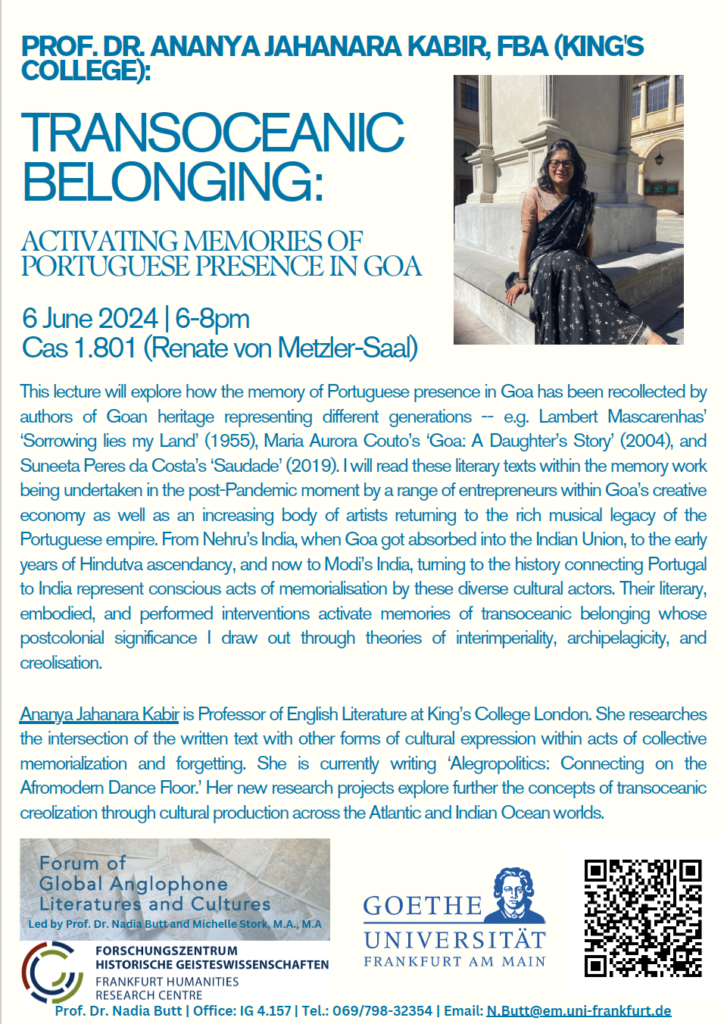Moving Cultures, Transcultural Encounters
Thursday 6 June 2024, 6-8pm, Cas 1.801 (Renate von Metzler-Saal), Campus Westend, Goethe University Frankfurt,
This lecture is part of the Forum of Global Anglophone Literatures and Cultures

This lecture will explore how the memory of Portuguese presence in Goa has been recollected by authors of Goan heritage representing different generations — e.g. Lambert Mascarenhas’ ‘Sorrowing lies my Land’ (1955), Maria Aurora Couto’s ‘Goa: A Daughter’s Story’ (2004), and Suneeta Peres da Costa’s ‘Saudade’ (2019). I will read these literary texts within the memory work being undertaken in the post-Pandemic moment by a range of entrepreneurs within Goa’s creative economy as well as an increasing body of artists returning to the rich musical legacy of the Portuguese empire. From Nehru’s India, when Goa got absorbed into the Indian Union, to the early years of Hindutva ascendancy, and now to Modi’s India, turning to the history connecting Portugal to India represent conscious acts of memorialisation by these diverse cultural actors. Their literary, embodied, and performed interventions activate memories of transoceanic belonging whose postcolonial significance I draw out through theories of interimperiality, archipelagicity, and creolisation.
Bio note
Ananya Jahanara Kabir is Professor of English Literature at King’s College London. She researches the intersection of the written text with other forms of cultural expression within acts of collective memorialization and forgetting. She is currently writing ‘Alegropolitics: Connecting on the Afromodern Dance Floor.’ Her new research projects explore further the concepts of transoceanic creolization through cultural production across the Atlantic and Indian Ocean worlds.
Through an ERC Advanced Grant (2013-2018), she led ‘Modern Moves’, an interdisciplinary investigation into African-heritage social dance and music. For her innovative work in the Humanities, she received the Infosys Humanities Prize (2018), awarded by the Infosys Science Foundation, India, and the Humboldt Forschungspreis (Humboldt Prize, 2018), awarded by the Alexander von Humboldt Stiftung, Germany.


